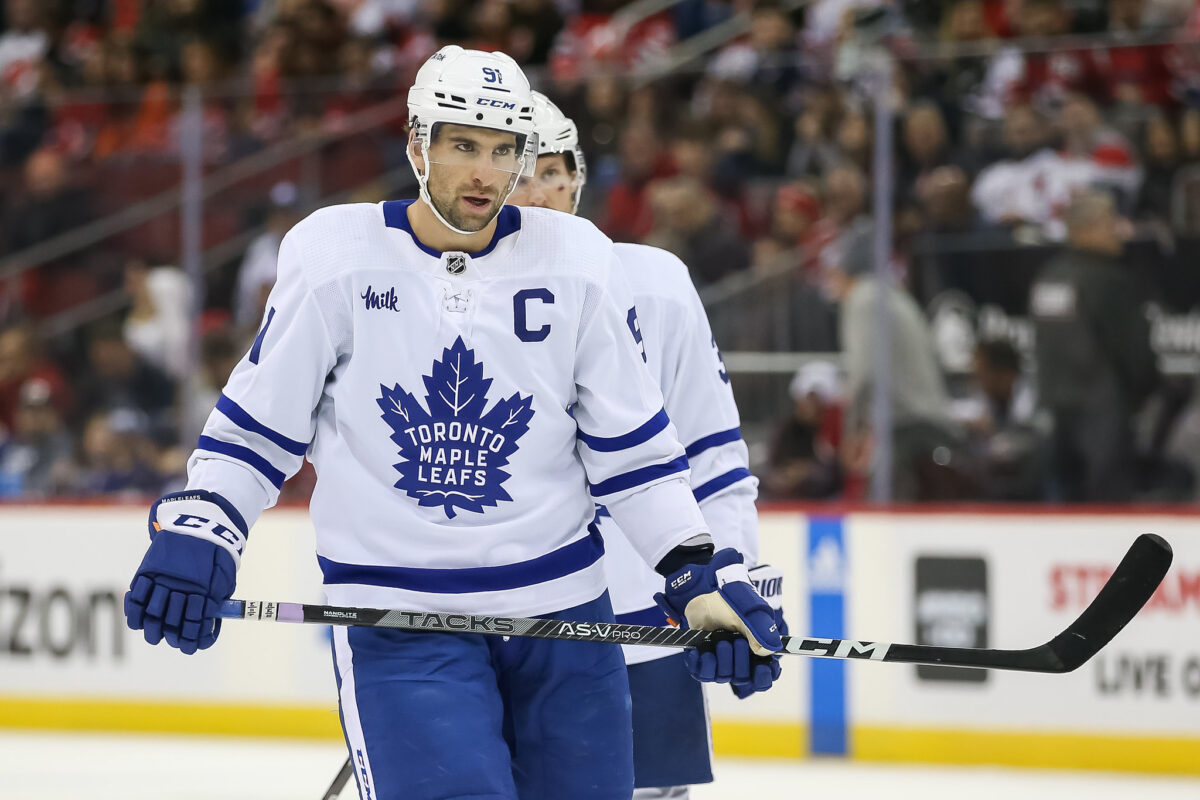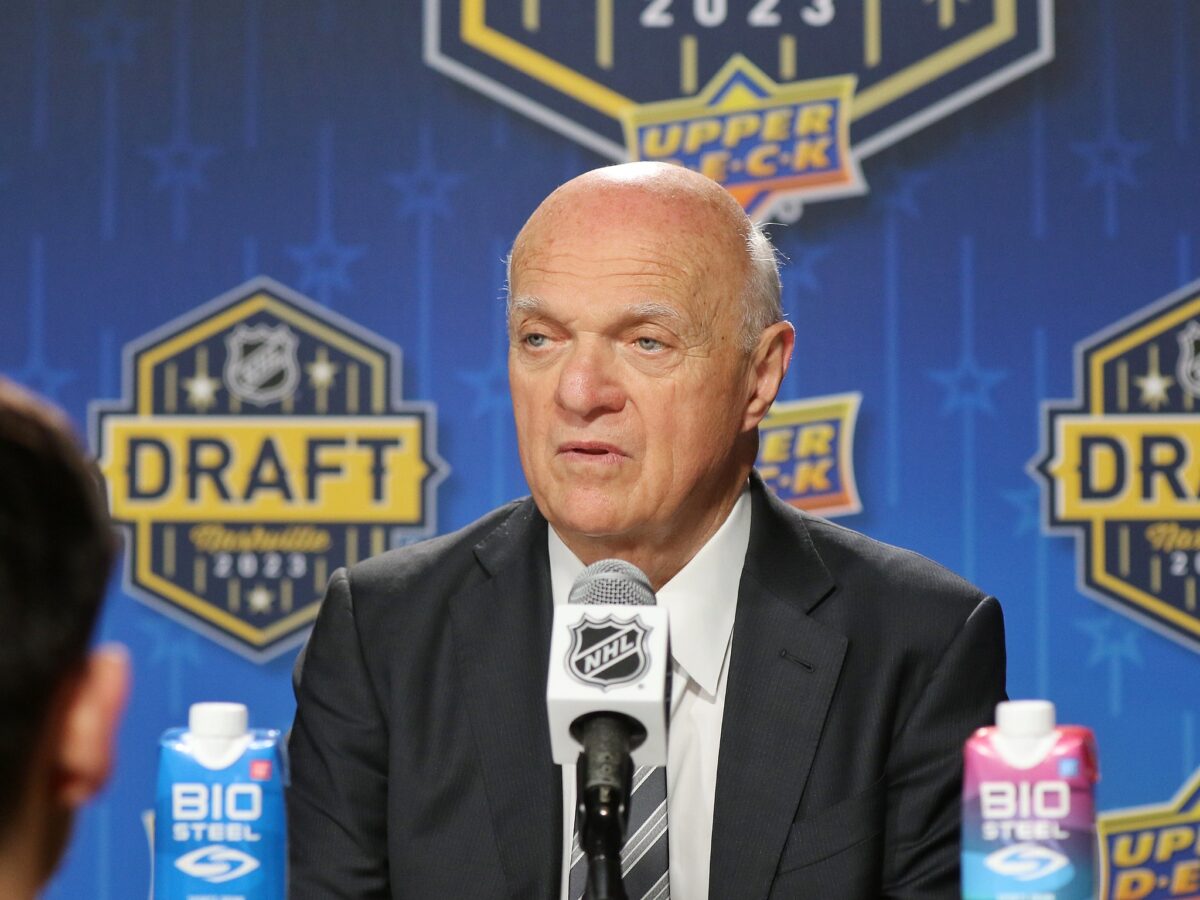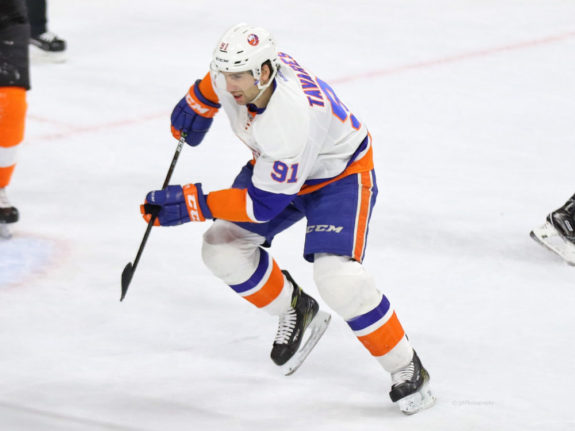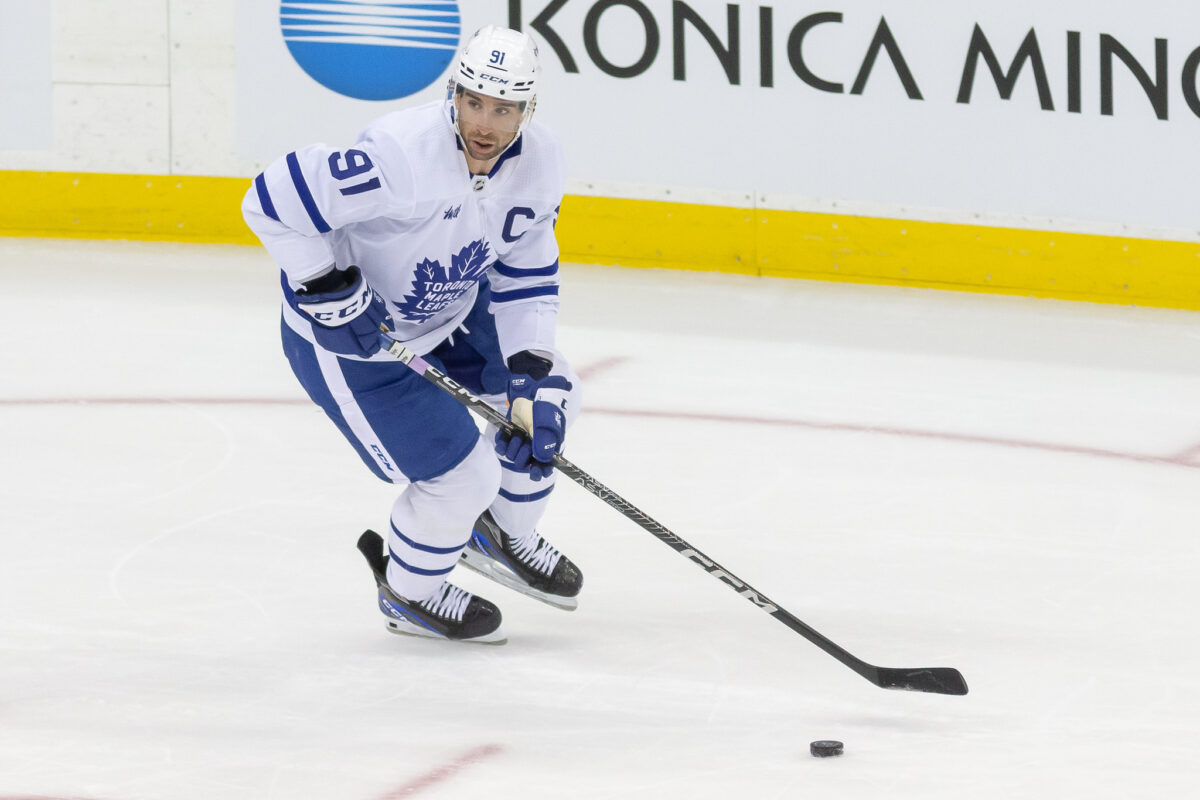The John Tavares contract was the biggest of the 2018 offseason. That summer, the Toronto Maple Leafs signed him to a seven-year deal averaging $11 million per year in a deal that brought a player back to his hometown while leaving the New York Islanders and their fanbase feeling betrayed.

Tavares choosing to play for the team he grew up supporting, and doing so on one of the most expensive contracts in the league, had a significant impact on the team he joined, the team left, and the entire NHL.
Related: Maple Leafs Still Have Lots to Do Before 2023-24 Starts
Five years later, with the signing in the rearview mirror, the question is which team really won the Tavares sweepstakes, the Maple Leafs or the Islanders? Initially, the Islanders, who lost their best player and face of the franchise, looked like the losers of free agency, but it turns out that wasn’t the case.
Islanders Ushered in a New Era
The Islanders wanted Tavares to re-sign and end his career with the team that drafted him with the number one overall pick in the 2009 NHL Entry Draft. However, his departure set the tone for Lou Lamoriello’s tenure as the general manager (GM). The veteran GM was hired that offseason, and it wasn’t clear at the time, but a theme in his team-building philosophy was to avoid overpaying for a star scorer in free agency.

The subsequent offseasons would see the Islanders intrigued by elite skaters only to avoid acquiring them. In 2019, the elite player was Artemi Panarin, who signed with the rival New York Rangers. In 2022, Lamoriello was interested in adding Johnny Gaudreau or Nazem Kadri but not for the salaries they were asking for, and ultimately the two skaters signed elsewhere. This summer, the Islanders were one of the few teams interested in making a trade for Alex DeBrincat, but they came up short as he was dealt from the Ottawa Senators to the Detroit Red Wings, his hometown team. Tavares was the first, and far from the last, elite skater Lamoriello would avoid spending on, and for the veteran GM, the decision reflected his vision for building a contender.
The money that could have been used to re-sign Tavares was used elsewhere. Lamoriello extended core players on the roster in the subsequent years, including Mathew Barzal, Brock Nelson, Anders Lee, Ryan Pulock, and Adam Pelech. Instead of being built on star power, the Islanders would be built on depth, and that would be the catalyst for the team’s return to the playoffs and contention.

The Islanders, who missed the playoffs in 2017-18, became competitive immediately after Tavares left. With head coach Barry Trotz fixing the defense and a deep forward unit, they made the playoffs in 2019 and reached the Second Round. They reached the Stanley Cup Semifinal in 2020 and 2021, and the rematch against the Tampa Bay Lightning, which went seven games, had them on the doorstep to winning the Cup. The Islanders never had a star leading them, and instead, as one of the league’s more well-rounded teams, they overwhelmed opponents in their playoff runs.
The immediate success would signal that Tavares leaving was one of the best things to happen to the Islanders in recent years. That said, the team lacks an elite scoring presence, and ultimately, it’s what prevents them from contending for the Cup. The Islanders haven’t averaged over 3.00 goals per game in a season since 2017-18, the last one with Tavares on the roster, and the absence of a top-line scorer has been one of the many reasons why.

The hope is that Bo Horvat, who was acquired from the Vancouver Canucks during the 2023 All-Star Break, can become that type of player, but there’s no telling that he will be. The expectation is that Horvat will bounce back, but it’s unlikely he will be the perennial 30-goal scorer that Tavares was and still is with the Maple Leafs.
Tavares Was Never Going to Live Up to His Contract
When a player is paid $11 million per year, the expectation is for them to be more than a star. They need to be among the best in the NHL, arguably top-five at their position, and carry their team year in and year out. Connor McDavid is earning $12.5 million per year with the Edmonton Oilers, but he has been worth every dime, winning three Hart Trophies and leading the team to the top of the Western Conference every year. That’s the bar that is set with that type of deal.

Tavares has been a great player with the Maple Leafs. He’s scored 155 goals and 199 assists and has surpassed the 30-goal threshold twice in the past five years. While still impressive, he hasn’t been a top-tier center or even the best skater on his team (some would argue he’s the fourth-best in the forward unit alone). To be fair, the Maple Leafs have a top-heavy roster with stars in the top-six, but Tavares, at times, disappears in that group which is an outlier compared to the other elite players around the NHL.
The contract made Tavares a target, and whenever he fell into slumps, a player could easily be pinned as a disappointment. When he was signed, he was 28 years old and in his prime, but even so, the deal was paying him for what he did with the Islanders and not what he went to do with the Maple Leafs.

There’s also the factor that he was brought in to put the Maple Leafs over the top and help them win their first Stanley Cup title since 1967. In the playoffs when the pressure is amplified, Tavares has been a non-factor. From 2019-22, he scored only seven goals and seven assists as he struggled to elevate the offense. He missed all but one game in the 2021 First Round when he suffered a series-ending concussion, but otherwise, he has played in every playoff game for the Maple Leafs and was a part of each First Round exit.
Tavares Helped Form the New Core Of the Leafs
The Tavares signing in a vacuum isn’t great. However, the deal allowed the front office to attract other players, and more importantly, send the message to the players on the team and the entire NHL that the Maple Leafs were making a push to compete. While they had less salary cap space to work with, adding Tavares allowed the Maple Leafs to add players like Mark Giordano and David Kampf on team-friendly deals.
Spending in free agency can often backfire, but the message it sends to the roster can be a good one. The Ottawa Senators are a prime example of the opposite, as they avoided spending or extending their core players despite having a great team that was on the doorstep of winning the Cup. As a result, the Senators fell apart, going from losing Game 7 in double overtime in 2017 to a perennial last-place team in a few years. The front office recently reversed that trend and has started to spend big with the collapse in mind, and Brady Tkachuk was the first player in franchise history to eclipse the $8 million per year threshold with his extension in 2021. With the Maple Leafs, they signaled they were ready to compete when they signed Tavares, and the rest of the roster took that to heart.

Along with how the contract shaped the Maple Leafs, Tavares has been a quiet person, both on and off the ice. This might not be ideal for his brand (he won’t have a legacy or story like Tim Horton), but it is exactly what the Maple Leafs want in their captain. He’s almost never in the news and rarely receives criticism for outlandish comments or actions. Instead, he just shows up to work every day and does his job, setting the tone for the team every night for an entire season.
In the recent playoff run, he was the one that scored the Game 6 overtime-winning goal in the First Round. His snipe past Tampa Bay Lightning goaltender Andrei Vasilevskiy’s glove sent the Maple Leafs to the Second Round for the first time since 2004, and it could be a sign of things to come. Tavares only has two more years left on his contract, but he can be the one to lead the team to the Stanley Cup and snap the longest title drought in NHL history.
How Tavares Impacted the NHL
It’s hard to deny that Tavares helped bring the Maple Leafs back to relevancy. They made the playoffs in 2017 and 2018, but since he joined the team, they’ve finished near the top of the Eastern Conference every year. Before Tavares signed, the Maple Leafs only made the playoffs three times in 11 years, and oftentimes, they were near the bottom of the standings as well. He didn’t singlehandedly make the team competitive, but he’s been an integral part of their recent turnaround.
The contract, in a broader sense, also continued to set a premium for star players. The $11 million per year threshold has only been eclipsed five times since Tavares was signed with Auston Matthews, Erik Karlsson, Panarin, Nathan MacKinnon, and David Pastrnak fielding those contracts. The deal lets the player and the fanbase know that there are higher expectations. Tavares never fulfilled them, and it was a reminder for other front offices to use the big money deal sparingly.
